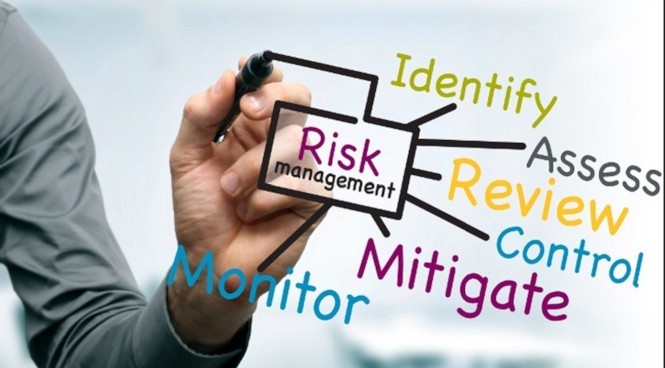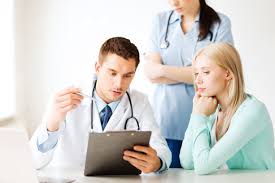
Diagnosed with Cancer? Your two greatest challenges are understanding cancer and understanding possible side effects from chemo and radiation. Knowledge is Power!
Learn about conventional, complementary, and integrative therapies.
Dealing with treatment side effects? Learn about evidence-based therapies to alleviate your symptoms.
Click the orange button to the right to learn more.
- You are here:
- Home »
- Blog »
- side effects ID and prevention »
- HPV, Educating Patients, Families
HPV, Educating Patients, Families

The topic of cancer prevention can be hard to navigate. The number of cancer-causing foods, drugs, and simple behaviors that have some evidence of increasing the risk of cancer can be a daunting education. Doctors have expressed that it’s difficult to know what to tell patients on the matter – and what not to tell. Elena Riboldi writes about this issue relating to a patient with HPV in Medscape Medical News:
“Approaching the topic of orogenital transmission of human papillomavirus (HPV) with a woman presenting with a persistent cervicovaginal HPV infection is more problematic than it may seem. To not mention it, however, would be to pass over an opportunity to prevent oropharyngeal cancer. There are no clear indications from any scientific authorities as to how a doctor should broach the subject, and therefore it comes down to the individual to weigh the ethical implications of counseling. In a highly detailed article, a group of Italian clinicians describes what they know about the orogenital transmission of HPV and raises several points worth reflection.”
In this article, the authors of a journal article in BMC Women’s Health discuss the difficulty of broaching the topic of oral HPV transmission with women presenting with persistent cervicovaginal HPV infections. They state that in wealthy countries, oropharyngeal cancer is now the most frequent HPV-related cancer and that oral HPV transmission has overtaken smoking and heavy alcohol consumption as the main risk factor for oropharyngeal cancer.
The article notes the lack of guidance from scientific authorities and the need for individual consideration of the ethical implications of counseling. The authors emphasize the importance of primary prevention as the only means to counteract the rising incidence of oropharyngeal cancers and the need for more detailed recommendations from health authorities on counseling women with persistent high-risk HPV-DNA test.
What these doctors prescribe is greater awareness of risk. Unfortunately, cancer is a disease that becomes more likely from STDs, like HPV, which can be contracted from sharing a drink with a friend, or from eating certain foods, like char-grilled chicken that contains carcinogens. These two examples may not elevate your likelihood of getting cancer in the same way, but there are many factors that increase risk, and more people should be aware of them before they ever get a diagnosis. HPV should come with a recommendation of preventative measures now that the women that contract it are at risk of cervical cancer.
The reason it may be so difficult to talk to patients about cancer risk is that there is no perfect prescription. There are things a patient can do, like eating certain foods or in the case of an HPV patient trying to decrease the risk of cervical cancer, use a condom. Doctors would also suggest not smoking cigarettes to prevent cervical cancer. This is the same general advice you would hear for a slew of other cancers because of the carcinogens in cigarettes. There are so many studies out there on cancer prevention, and as stated in the article, much of the information is inconclusive. The fact of the matter is that much like the disease itself, cancer prevention is shrouded in nuance. There’s often no one solution that can protect you effectively.
The article above vaguely recommends counseling or education as a solution to this. People have a surface-level understanding of what increases the risk for different cancers. Because the topic is so broad it would be nice if healthcare providers allowed easy access to that information.
Perhaps just as important as education on cancer prevention should be therapy. Because there is so much to know it might be easy to get overwhelmed by the monolith of cancer. I see this fear of cancer’s reach and magnitude in my dad, David Emerson. Although he is an optimistic person in general, there is a lot of space in his head occupied by cancer. He’s so well educated on the topic that he knows every potential risk factor there is. He’s seen all of the dark corners in which cancer lurks and what it can do and I believe this weighs on him every day.
He’s too knowledgeable.
- He avoids grilled foods because of the carcinogens,
- red meats, and
- raw fish,
- takes an extensive amount of supplements,
- and is quick to lecture his loved ones that don’t share these habits.
This isn’t objectionable behavior, the thing is he’s right. Why wouldn’t he want to educate his family on activities that increase cancer risk? But not having lived through cancer or done the research, I can’t help but roll my eyes in bored ignorance sometimes. Sometimes eating red meat or smoking a cigarette is worth the risk. But maybe that philosophy is only one that I can believe because I haven’t lived through cancer, I haven’t truly seen it. On the other hand, my dad is clearly anxious and spends so much time thinking about cancer that I believe it’s central to his anxiety. This is a long-winded way of saying that cancer education is important so patients can know what they’re up against, but therapy for cancer patients is just as important because of how traumatic it is, and all of that education that comes with it.
Alexander Emerson
- Caregiver
- Writer
The issues of Human papillomavirus (HPV), cancer and increased risk runs throughout PeopleBeatingCancer-
- Multiple Myeloma Therapy- Clear Human Papilloma Virus
- HPV Risk Factor in Cervical Cancer
- Monoclonal Gammopathy of Undetermined Significance
- Recurrent, HPV, Head, Neck Cancer- Therapies
- AHCC Cured My Human PapillomaVirus – Cervical Cancer?
- AHCC, HPV, Myeloma and Cancer
- HPV-positive Oropharyngeal Cancer- AHCC
- HPV and Skin Cancer Risk
- HPV positive oropharyngeal squamous cell carcinoma
- Human PapillomaVirus? Cancerous? AHCC?


